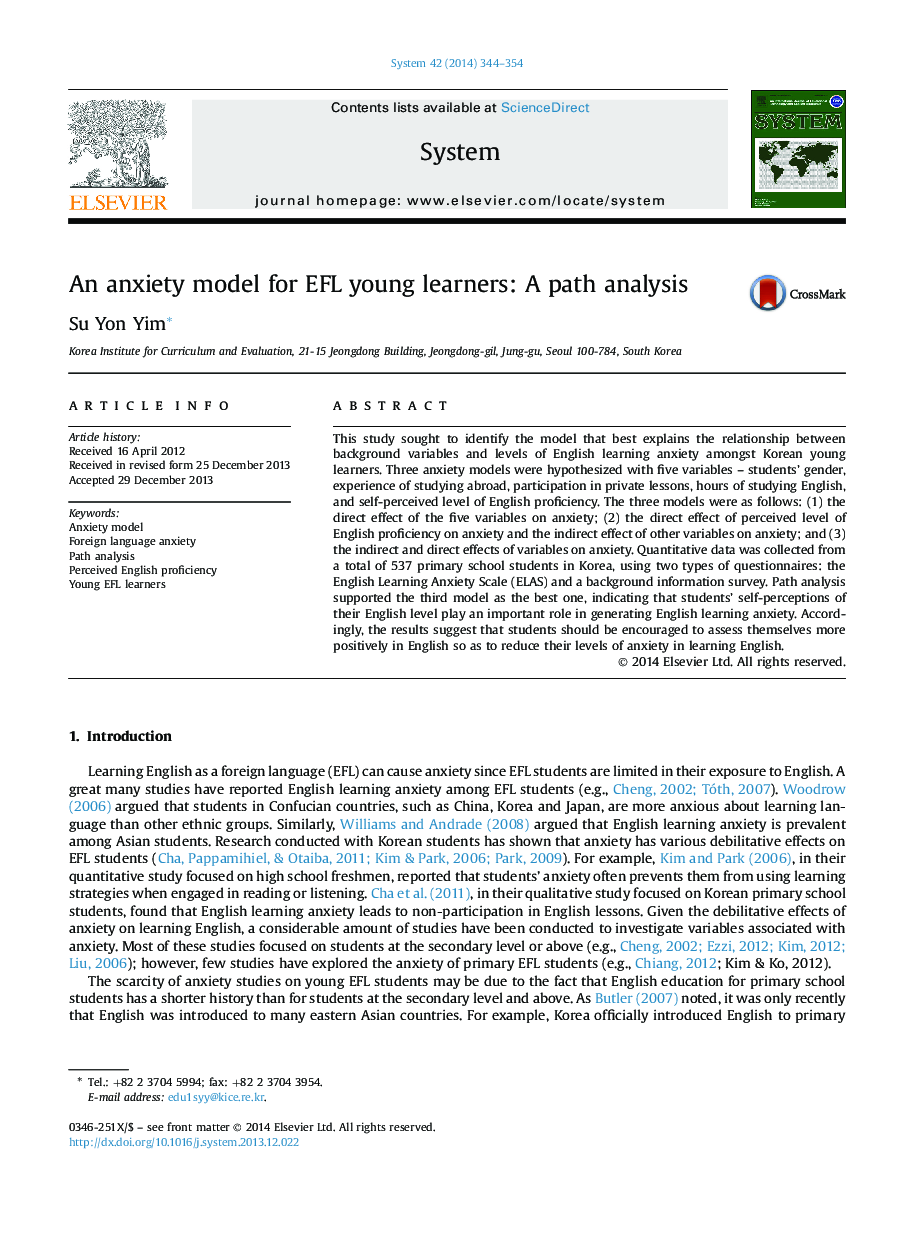| Article ID | Journal | Published Year | Pages | File Type |
|---|---|---|---|---|
| 373431 | System | 2014 | 11 Pages |
This study sought to identify the model that best explains the relationship between background variables and levels of English learning anxiety amongst Korean young learners. Three anxiety models were hypothesized with five variables – students' gender, experience of studying abroad, participation in private lessons, hours of studying English, and self-perceived level of English proficiency. The three models were as follows: (1) the direct effect of the five variables on anxiety; (2) the direct effect of perceived level of English proficiency on anxiety and the indirect effect of other variables on anxiety; and (3) the indirect and direct effects of variables on anxiety. Quantitative data was collected from a total of 537 primary school students in Korea, using two types of questionnaires: the English Learning Anxiety Scale (ELAS) and a background information survey. Path analysis supported the third model as the best one, indicating that students' self-perceptions of their English level play an important role in generating English learning anxiety. Accordingly, the results suggest that students should be encouraged to assess themselves more positively in English so as to reduce their levels of anxiety in learning English.
